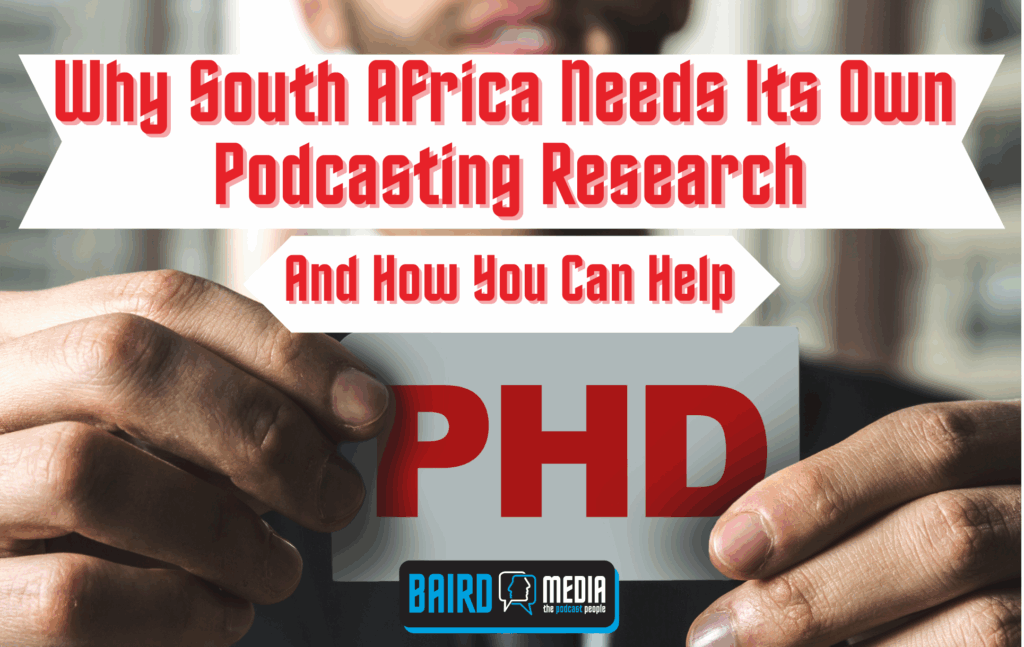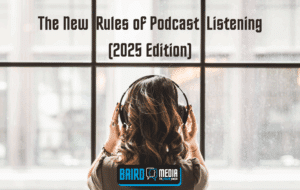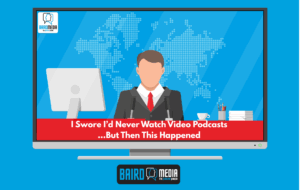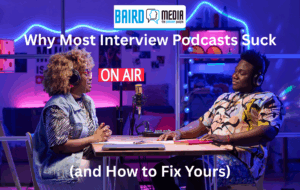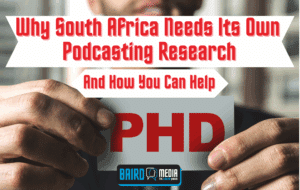
Why South Africa Needs Its Own Podcasting Research – And How You Can Help
Most podcasting research comes from the US and Europe, ignoring South Africa’s unique challenges and opportunities.
This new PhD study will gather real data from local indie podcasters to help grow the industry, advocate for support, and guide future development.

